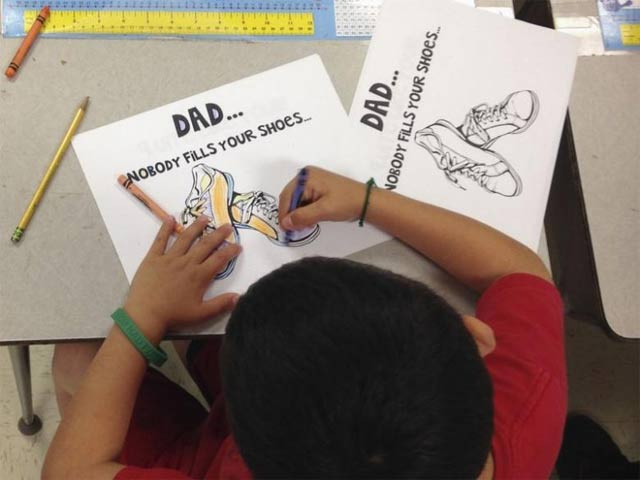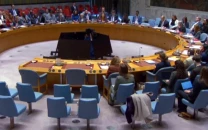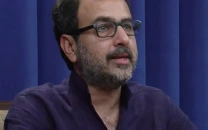Helicopter parenting: When doing too much for your child is harmful
Since September 11 and multiple economic crashes, parents have become obsessed with the futures of their children

Since September 11 and multiple economic crashes, parents have become obsessed with the futures of their children. PHOTO: REUTERS
Since September 11 and multiple economic crashes, parents have become obsessed with the futures of their children, interfering in their children’s grades, university applications, job hunts and even personal aspects of their lives. Parents justify this behaviour by claiming they have a right to be involved given the investment they make in the children’s educational pursuits. The changing world has made parents paranoid of child-related crimes and hence, they prefer to keep their children close, both literally and figuratively.
I learned true parenting from a foster mother
Lythcott-Haima, writer of the book How to Raise an Adult: Break Free of the Overparenting Trap and Prepare Your Kid for Success argues that this ‘overparenting’ is doing more harm than good as it “robs them of the chance to learn who they are, what they love and how to navigate the world”. She further writes, “We want so badly to help them by shepherding them from milestone to milestone and by shielding them from failure and pain. But over helping causes harm. It can leave young adults without the strengths of skill, will and character that are needed to know themselves and to craft a life.”
There is limited research to prove this but a handful of studies and surveys by counsellors report higher rates of general anxiety, lowered self-esteem and dissatisfied family life, where kids are believed to be micro-managed by over-controlling or over-protective parents.
Clinical psychologist Wendy Mogel, an expert on parenting and author of the books The Blessing of a Skinned Knee and The Blessing of a B Minus, has empathised with these parents. The American psychologist and author speaks of them as ordinary, devoted parents who mean the best for their little ones but who fail to recognise when it is time to step back and let their kids enter adulthood independently. The problem arises when parents do everything for the child, keeping them from taking their own decisions, solving their own problems, or making their own mistakes, hence making them overly dependent and risk-averse. By shielding them from all pain and failure, they take away the child’s ability to function in the real world unaided. Hanna Rosin’s latest feature for the international magazine The Atlantic, "The Overprotected Kid," explores the side effects of over-protectiveness by asserting this causes children to become risk-averse and over-paranoid themselves, making them ill-equipped to deal with dangers, fears and risk.
Intelligent parenting- handle with care
Here are some ways in which you can avoid becoming a helicopter parent:
- Don’t do things for your child. Coach them and then encourage them to finish their tasks independently without hovering or interfering.
- Do not obsess over grades, incessantly talking to them or their teachers about their performance at school.
- Do not answer all your child’s questions without giving them a chance to find out the answer for themselves, through research and reasoning.
- Encourage children to discover their unique passions and point of views. Their opinions do not need to reflect your own. Let them express their inner thoughts and aspirations and encourage them to follow them through, even if they are different than what you had planned.
- Let them face troubles and make mistakes. Allow them to feel pain, disappointment and failure. It is a part of growing up. As a parent, the best thing you can do is to teach coaching skills rather than to shield them from realities of life.
- Do not hand over everything to them. Teach them lessons of struggle, hard work and achievement, without obsessing over winning and competing all the time.
Mehreen Ovais is an alumna of Manchester Business School and Lahore University of Management Sciences. She is passionate about writing and journalism.
She tweets as @mehreenovais


















COMMENTS
Comments are moderated and generally will be posted if they are on-topic and not abusive.
For more information, please see our Comments FAQ